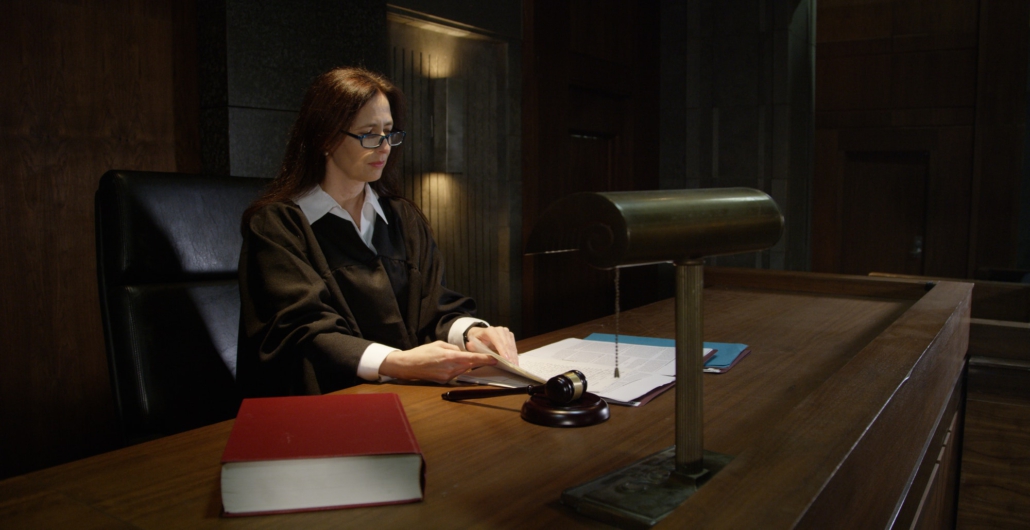LEGAL+ NEWS
The coronavirus is forcing countries around the world to take drastic measures to counter the spread of the virus. This is having a serious impact on contract law. Many of these measures mean that contracts can no longer be fulfilled by at least one party. The cases affected are countless. Some examples are
- the supply contract that cannot be serviced,
- the commercial tenancy agreement, which can no longer be fulfilled by the tenant due to a lack of turnover,
- the vacation trip that has to be canceled by the organizer or service provider,
- the court settlement, which has lost its basis due to the economic consequences of the coronavirus crisis and can no longer be (reasonably) fulfilled,
- etc.
The list of examples could be continued almost endlessly. In each case, the question arises as to how the respective situation can be resolved under contract law. The buzzword on everyone’s lips these days is “force majeure”, although this in itself is of little help. For example, it seems questionable whether the emergence of the coronavirus can even be classified as a force majeure event.
The following article is not intended to and cannot offer a solution for individual cases. Rather, it presents legal approaches that can provide a solution in individual cases. The discussion is limited to cases where the respective contract contains no or only inadequate provisions.

Consequences of the coronavirus for current contracts – case groups
Various scenarios can be considered as a result of the coronavirus. The three main cases are as follows:
- The contract cannot be definitively fulfilled by one of the parties (examples: flight cancellation, concert cancellation, cancellation of trade fairs, etc.).
- The fulfillment of the contract is temporarily impeded (prominent example: Tenant can temporarily no longer pay commercial rent due to lack of turnover).
- A contract can still be fulfilled, but its execution no longer appears reasonable for at least one party due to the effects of the coronavirus.
Corona and contract law: Relevant basic legal principles
When evaluating each individual case, it is helpful to first consider the following basic legal principles.
“pacta sunt servanda” – principle of contractual fidelity
The highest and most general basic principle is contractual compliance. Contracts must always be complied with (“pacta sunt servanda”).
Difficulties in the provision of services that arise after the conclusion of the contract and have not been considered or taken into account do not change the obligation to perform. Exceptions to this therefore require special justification.
“do ut des” principle for mutual contracts – Section 326 BGB
In the case of reciprocal contracts, the impossibility of performance by one party generally results in that party being released from its obligation to perform. At the same time, however, it also loses its claim to consideration. This occurs in § Section 326 (1) sentence 1 BGB expressed:
“If the debtor is not required to perform pursuant to section 275 (1) to (3), the claim to consideration shall lapse (…)”
Supplementary interpretation of the contract and disruption of the basis of the transaction
If the contract in question contains a loophole regarding the circumstance in question, which can be closed by (supplementary) interpretation of the contract in accordance with the principles of determining the hypothetical will of the parties (Sections 133, 157, 242 BGB), this solution approach always takes precedence over any “emergency instruments” such as, in particular, interference with the basis of the contract in accordance with Section 313 BGB.
In case law, it is rightly emphasized time and again that a clear distinction between supplementary contract interpretation and the institute of interference with the basis of the contract is hardly possible.
In any case, the legal provision made must always be given priority. In the legal literature (see Flume, BGB AT II, Das Rechtsgeschäft, 4th edition, 1992, page 326 f.), it is correctly pointed out that the interpretation of a contract cannot have the purpose of deriving a legal effect from a legal transaction.
- “unfair” contract into a “fair” one,
or- “… to correct the forgetfulness or carelessness of a contracting party in the formulation of a legal transaction by subsequently introducing into the contract, for the benefit of that contracting party, provisions which, if he had been well advised, he would have made the subject of the contract, but which he did not make the subject of the contract.”
It follows from this correct insight alone that a hypothetical will of the parties to be determined must take precedence over a “general weighing of interests” on the basis of a preliminary understanding of the judge, which determines an adjustment of the contract according to the principles of the basis of the transaction.
Corona and contract law – Possible solutions for the above-mentioned case groups
Taking into account the principles and legal instruments summarized above, the following solutions are possible.
Corona and contract law – Case 1: A contract cannot be definitively fulfilled by one party
In the absence of a contractual provision to the contrary, the solution in case constellation 1 should usually be clear:
The contractual partner who is ultimately unable to perform due to force majeure is released from its obligation to perform, Section 275 (1) BGB. As a result, he loses the right to the agreed consideration (= as a rule: remuneration), Section 326 (1) sentence 1 BGB. In the absence of fault, claims for damages on the part of the creditor are generally out of the question.
Corona and contract law – Case 2: A contract cannot be fulfilled temporarily
The situation is more complex if there is no so-called firm deal and the service affected by the force majeure can probably be made up for later:
The advantage of agreeing force majeure clauses, in which it is regularly agreed how situations are to be dealt with, is particularly evident in this frequently encountered constellation.
Primary solution approach: Supplementary contract interpretation
If this is not the case, the supplementary interpretation of the contract comes into play as described above. Contracts often contain general agreements from which special duties of loyalty and/or cooperation can be derived. This detour often leads to results that are expressly provided for in force majeure clauses.
The obligation to make joint efforts to limit damage on both sides should be mentioned in particular. Mutual claims for damages are likely to be regularly excluded in the absence of fault, even without a corresponding contractual provision.
If necessary: recourse to the principles of frustration of contract
It is more difficult to assess the question of when the debtor’s obligation to perform finally ceases, with the result that the other party is also finally not required to perform. In § Section 313 (1) BGB it says:
- “If circumstances that have become the basis of the contract have changed significantly after the contract was concluded and
- the parties would not have concluded the contract or would have concluded it with different content if they had foreseen this change,
- an adjustment to the contract may be demanded if one party cannot reasonably be expected to adhere to the unchanged contract, taking into account all circumstances of the individual case, in particular the contractual or statutory distribution of risk.”
In addition, the right to refuse performance under Section 275 (2) BGB also offers help in finding a solution:
“The debtor may refuse performance if this requires an effort that is grossly disproportionate to the creditor’s interest in performance, taking into account the content of the obligation and the requirements of good faith. When determining the efforts to be expected of the debtor, it must also be taken into account whether the debtor is responsible for the impediment to performance.”
In the interplay of the above statutory provisions, the debtor concerned is likely to have a claim to amicable termination of the contract if it is not foreseeable that the impediment to performance will cease to exist. this is based on the fact that the debtor cannot reasonably be expected to adhere to the originally agreed performance obligations.
Liability for damages in the event of non-performance?
However, this does not answer the question of whether the creditor is entitled to compensation for the “release” of the debtor from his obligation to perform. The fact that the debtor is not at fault speaks against this. The fact that the service can still be provided in principle and the lack of a contractual provision tends to indicate that the debtor bears the risk in question (pandemic) speaks in favor of this. It should not be forgotten that the risk in question is not beyond all probability. It is not without reason that force majeure clauses are the rule rather than the exception in contract law.
After all, the respective circumstances of the individual case are likely to be decisive.
Corona and contract law – Case 3: A contract can still be fulfilled, but its execution no longer seems reasonable for one party.
The case constellation according to which
- a contract can still be fulfilled at a later date despite coronavirus restrictions,
- its (later) implementation no longer appears reasonable for at least one party,
shows in particular how important contractual clauses that take contingencies such as “Corona” into account can be. If this is lacking, Section 275 (2) BGB, which is based on the principle of good faith and also on whether there would be a “gross disproportion to the creditor’s interest in performance” in the event of performance, helps again.
In the specific case, it would therefore have to be examined whether the debtor concerned, for whom the provision of services would be possible but significantly more difficult as a result of the corona effects, can successfully invoke the aforementioned right to refuse performance under Section 275 (2) BGB.


Conclusion on coronavirus in contract law: Disruptions to contracts as a result of the coronavirus usually require a case-by-case assessment
The possible factual constellations are almost endless. The law does not provide any model solutions, and even in the case of force majeure clauses, a specific solution is unlikely to be “obvious”. In most cases, a solution can only be found by carefully examining all the circumstances of the individual case. This has now also been confirmed by the Federal Court of Justice in the first Corona rulings, see this article.

LATEST ARTICLES

“Handelsblatt” report from March 15/16/17, 2019 confirms the questionable nature of the action taken by the Association of Social Competition (VSW) against influencers
LEGAL+ NEWS “Handelsblatt” report from March 15/16/17, 2019 confirms the

Conditions of carriage for letters: Liability of Swiss Post for the loss of a registered letter
The question of liability for registered mail sent by Deutsche Post is becoming increasingly important, as in the real world of amazon, ebay & Co. goods are increasingly being sent as e.g. registered maxi letters. This is when the question of whether and, if so, to what extent liability on the part of the postal service can be considered comes into play. This is the subject of the following article.

Guide: Judge biased? The application for bias according to § 42 ZPO
Anyone who has ever been forced to seek legal assistance to enforce or defend against claims knows that being right and getting right are different things. It is not uncommon, and this experience is (unfortunately) also familiar to many of those affected, for the court proceedings to be accompanied by the impression that the judge responsible for the decision was not neutral and therefore possibly biased. If this partiality is to one’s own detriment, the question arises as to whether there are options for action in such cases. The following remarks deal with this question.
CONTACT

+49 (40) 57199 74 80
+49 (170) 1203 74 0
Neuer Wall 61 D-20354 Hamburg
kontakt@legal-plus.eu
Benefit from my active network!
I look forward to our networking.
This post is also available in: DE

